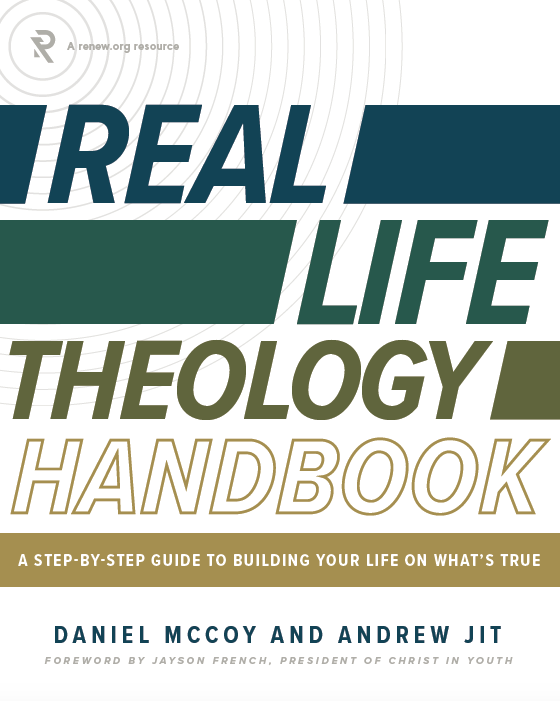
What Is the Meaning of Easter?
What is the meaning of Easter? Easter is a celebration of the resurrection of Jesus, which happened the Sunday after he was crucified on Friday. Jesus’ resurrection is worth celebrating for six reasons: His resurrection means that 1) his execution wasn’t the end, 2) there’s an afterlife, 3) he was successful in saving us from our sins, 4) he was telling the truth, 5) he ended the reign of our deepest enemies, and 6) he has begun restoring all reality.
Have you ever wondered what was so great about Jesus rising from the dead? For his disciples in the first century, it was such amazing news that they were willing to be persecuted and even killed for preaching it. They knew that, whatever hostility came their way, it was worth it because Jesus had risen from the dead.
But what about us? What makes Jesus’ resurrection worth celebrating for us, living so many centuries later? Here are 6 reasons Jesus’ resurrection is so important for us today. To help us remember these reasons, they’ll spell the word EASTER.
E – Jesus’ resurrection means his Execution wasn’t the End.
Jesus’ resurrection is important because it means that history’s greatest injustice, the crucifixion of God’s Son, didn’t end in tragedy. We can be hopeful because his execution wasn’t the final chapter in his story.
“Fellow Israelites, listen to this: Jesus of Nazareth was a man accredited by God to you by miracles, wonders and signs, which God did among you through him, as you yourselves know. This man was handed over to you by God’s deliberate plan and foreknowledge; and you, with the help of wicked men, put him to death by nailing him to the cross. But God raised him from the dead, freeing him from the agony of death, because it was impossible for death to keep its hold on him.” (Acts 2:22-24, NIV)
What is the meaning of Easter? “God raised him from the dead, freeing him from the agony of death.”
A – Jesus’ resurrection means there’s an Afterlife.
When Jesus rose from the dead, it showed us that death doesn’t have the final say. There’s an afterlife. And Jesus didn’t rise from death and then become a disembodied soul. He was raised to a physical body (Luke 24:41-43) that would no longer wear out or die. In the same way, at the “final resurrection” at the end of time, God promises to raise us up to physical bodies fit for the new heaven and new earth (1 Cor. 15:42)
“But Christ has indeed been raised from the dead, the firstfruits of those who have fallen asleep. For since death came through a man, the resurrection of the dead comes also through a man. For as in Adam all die, so in Christ all will be made alive. But each in turn: Christ, the firstfruits; then, when he comes, those who belong to him. Then the end will come, when he hands over the kingdom to God the Father after he has destroyed all dominion, authority and power. For he must reign until he has put all his enemies under his feet. The last enemy to be destroyed is death.” (1 Cor. 15:20-26)
What is the meaning of Easter? “For since death came through a man, the resurrection of the dead comes also through a man.”
S – Jesus’ resurrection means he was Successful in Saving us from our Sins.
Jesus’ resurrection is important because it means the crucifixion wasn’t just an unfortunate event. Jesus’ resurrection means that the crucifixion was effective in doing what Jesus meant it to accomplish: to save us from our sins. Because Jesus rose, we can have confidence that on the cross he really did forgive us from our sins.
“He [Jesus] was delivered over to death for our sins and was raised to life for our justification.” (Rom. 4:25, NIV)
T – Jesus’ resurrection means he was Telling the Truth.
If the cross had been the end of the story, we couldn’t have confidence that Jesus was telling the truth about his Father, about the right way to live, or about his heavenly identity. But since the cross wasn’t the end, it shows that what Jesus had said was true. By raising him from the dead, God was confirming that Jesus was from him and was telling the truth. And we can entrust our life—and afterlife—to him.
He [Jesus] said to them, “This is what I told you while I was still with you: Everything must be fulfilled that is written about me in the Law of Moses, the Prophets and the Psalms.” Then he opened their minds so they could understand the Scriptures. He told them, “This is what is written: The Messiah will suffer and rise from the dead on the third day, and repentance for the forgiveness of sins will be preached in his name to all nations, beginning at Jerusalem. You are witnesses of these things.” (Luke 24:44-48, NIV)
What is the meaning of Easter? “Everything must be fulfilled that is written about me in the Law of Moses, the Prophets and the Psalms.”
Now Thomas (also known as Didymus), one of the Twelve, was not with the disciples when Jesus came. So the other disciples told him, “We have seen the Lord!” But he said to them, “Unless I see the nail marks in his hands and put my finger where the nails were, and put my hand into his side, I will not believe.” A week later his disciples were in the house again, and Thomas was with them. Though the doors were locked, Jesus came and stood among them and said, “Peace be with you!” Then he said to Thomas, “Put your finger here; see my hands. Reach out your hand and put it into my side. Stop doubting and believe.” Thomas said to him, “My Lord and my God!” (John 20:24-28, NIV)
E – Jesus’ resurrection means he Ended the reign of our Enemies.
By “enemies,” we’re talking about our greatest enemies: death, sin, and the devil. Jesus’ resurrection defanged death, proved that our sins were forgiven, and sealed the fate of the devil. Even as the cross was the Roman Empire’s way of saying “Game over,” the resurrection was God’s way of saying, “Jesus wins.”
“Since the children have flesh and blood, he too shared in their humanity so that by his death he might break the power of him who holds the power of death—that is, the devil—and free those who all their lives were held in slavery by their fear of death.” (Heb. 2:14-15, NIV)
What is the meaning of Easter? “He too shared in their humanity so that by his death he might break the power of him who holds the power of death.”
R – Jesus’ resurrection means he has begun Restoring all Reality.
Throughout Jesus’ ministry, he gave us a preview of how creation was meant to be: he healed the hurting, welcomed outsiders, lifted up the forgotten, restored the broken. His ministry was basically a movie preview of what heaven would eventually be like. As Jesus put it, in him “the kingdom of heaven has come near” (Matt. 3:2). In his kingdom, things were being made new, the way they were meant to be. He was restoring reality. After he died, it looked as though this beautiful kingdom was just another disappointment—but then he rose from the dead. His kingdom continues to grow, as his disciples wait for him to return to earth. When he returns, we will experience the kingdom in its undiminished goodness and glory:
“And I heard a loud voice from the throne saying, ‘Look! God’s dwelling place is now among the people, and he will dwell with them. They will be his people, and God himself will be with them and be their God. He will wipe every tear from their eyes. There will be no more death or mourning or crying or pain, for the old order of things has passed away.’ He who was seated on the throne said, ‘I am making everything new!’” (Rev. 21:3-5a, NIV)
What is the meaning of Easter? “He who was seated on the throne said, ‘I am making everything new!'”
So, Jesus’ resurrection is important. Is it true?
Here’s where we have to look at the evidence. I’ve talked to people who were unconvinced by the evidence, but I think it’s really strong. Here goes:
Somehow, after Jesus was crucified and placed in the tomb, his tomb turned up empty within days. The grave was somehow deserted. How do we know? Well, because as soon as Jesus’ disciples started saying, “He is risen!” what’s the quickest way to shut them up? Go get the body and show everybody that Jesus is very much dead. But they didn’t go get the body. They couldn’t go get the body—because the tomb was empty.
After Jesus’ crucifixion, there’s no good reason his tomb should have turned up empty; yet it did (Matt. 28:11-14). There’s no good reason why so many people should have said they saw Jesus alive; yet they did (1 Cor. 15:5-8). There’s no good reason why even skeptics, such as Paul and James, should have become Christians; yet they did (Acts 9:1-5; John 7:5; Gal. 2:9). There’s no good reason why the church should have begun with thousands of people just weeks after the crucifixion in the very city where Jesus had been publicly crucified; yet it did (Acts 2:1, 5, 38, 41). There’s no good reason why Jesus’ disciples would have been willing to suffer and eventually die for their faith in Jesus; yet they were (Acts 5:18, 29).
“There’s no good reason why so many people should have said they saw Jesus alive; yet they did.”
No good reason except for one. There was one reason that can explain 1) the empty tomb, 2) the post-death appearances of Jesus, 3) the conversion of skeptics such as Paul and James, 4) the huge beginning of the Church in Jerusalem just weeks later, and 5) the willingness of the apostles to die for their faith in Jesus. The reason? Hear it from the apostles themselves:
Peter and the other apostles replied: “We must obey God rather than human beings! The God of our ancestors raised Jesus from the dead—whom you killed by hanging him on a cross. God exalted him to his own right hand as Prince and Savior that he might bring Israel to repentance and forgive their sins. We are witnesses of these things, and so is the Holy Spirit, whom God has given to those who obey him.” (Acts 5:29-32, NIV)









